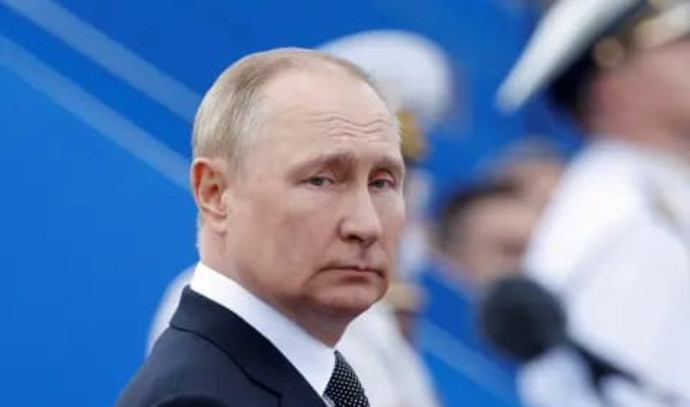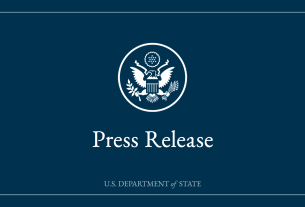Russia accused the Jewish state of helping those who killed its ancestors during the Holocaust, as it attacked Israel for helping Ukraine protect its nuclear power plants.
“If only the ancestors of Israel’s current political elite knew that their direct descendants would sponsor a regime that glorified their executioners and Holocaust ideologists!” the Russian Foreign Ministry spokeswoman wrote on her Telegram account on Tuesday.
She made the statement after Israel’s Atomic Energy Commission Director-General Moshe Edri said his country had provided Ukraine with assistance to safeguard its nuclear power plants.
Edri said Israel had “donated equipment to Ukraine as part of Israel’s commitment to the Convention on Assistance in Case of a Nuclear Accident,” when he addressed the 67th International Atomic Energy Agency General Conference in Vienna on Tuesday.
Israel has been treading carefully
Israel has been cautious about the type of assistance it provides Ukraine, with an eye to maintaining relations with Russia, whose military sits on its northern border.
Edri told the IAEA that “the war in Ukraine stresses the need for a global discussion on nuclear safety and security more than ever before, because, as we all know, the risks associated with nuclear safety and security have no boundaries.”
The bulk of his comments, however, were devoted to the danger of a nuclear Iran. “The international community must condemn the repeated and explicit threats by Iran and its proxies to attack Israel’s nuclear facilities. Israel will continue to protect its facilities from these threats as required,” he said.
Edri warned that Iran is conducting a military nuclear program and continues to test and deploy long-range ballistic missiles in violation of the UN Security Council, Edri said on Tuesday. “Iran is still the spearhead of regional instability, and is a threat to peace and security worldwide,” he stressed.
Halting Iran’s nuclear weapons activity requires the “full attention of the international community,” Edri stated. “There is no doubt that Iran conducted a military nuclear program aimed at producing several nuclear weapon devices. Iran continues to advance this program by gaining relevant technology and knowledge, along with fissile material in alarming amounts,” he explained.
“Iran has been conducting covert nuclear activities in undeclared sites for many years. The agency has found concrete evidence of these activities, including the use of undeclared material,” Edri added.
This week’s conference takes place amid global concern regarding Iran’s enrichment of uranium at 60%, which places it on the edge of being able to produce a nuclear bomb.
The Islamic Republic has “continuously failed to provide credible explanations or clarifications regarding the nature of these activities, and continues to deceive the agency and the international community” about them, he asserted.
Edri spoke as the United Nations Security Council’s prohibition against any Iranian missile activity related to nuclear weapons is set to expire this October. He explained that, despite this prohibition, “Iran continues to develop, test and deploy long-range ballistic missiles, in direct violation of UN Security Council resolutions.”
The expiration next month of UNSC resolution 2231 would allow “Iran to continue to advance its ballistic missile program without any formal limitations. This situation is dangerous and troubling. Iran, equipped with nuclear weapons and delivery systems, is not an option that Israel, or the world, can, or should tolerate,” he said.
Israel has not signed onto the global Non-Proliferation Treaty against nuclear weapons, but Edri warned on Tuesday that four of the five violations of that document have taken place in the Middle East.
Iran, Iraq, Libya and Syria have all broken the treaty, Edri said, as he highlighted the Assad regime’s actions in particular, claiming that it had “an undeclared, clandestine nuclear reactor at Dair Alzour, optimized for plutonium production,” which has been out of compliance with safeguard obligations “for over a decade.”
Earlier in the day, in a ceremony to mark the 50th anniversary of the Yom Kippur War, Netanyahu said that the world must prevent a nuclear Iran and that his country would do everything in its power to prevent this.
It’s a message, he said, that he delivered both to US President Joe Biden when the two men met in New York last week and to the UN when he spoke before the General Assembly.
On Monday, Iranian Vice President Mohammed Eslami, who heads the country’s Atomic Energy Organization, accused Israel of having a “clandestine military nuclear program,” explaining that Israel is not a signatory to the NPT and that its program has not been inspected by the IAEA.
Israel, he said, “regularly threatens our nuclear facilities with military attack” in a manner that runs counter to the IAEA statute as well as the UN Charter. He called on the international community, including the IAEA, to “prevent the normalization of such [an] unlawful menace.”
The international community has been silent on the issue of Israel’s military threats against Iran, Eslami said, as he recalled that Netanyahu had spoken of the importance of a credible military threat against Tehran at the UNGA last week.
Eslami also warned that Iran’s cooperation should not be taken for granted and could be negatively impacted by “short-sighted political agendas.”
Now is the time to avoid any pressure on Iran over its “peaceful nuclear program,” which has “proved to be fruitless,” Eslami stated. “It is incumbent upon those who have created such conditions to stop unproductive acts, remove illegal sanctions and drop unfounded allegations against Iran’s peaceful nuclear program.”



